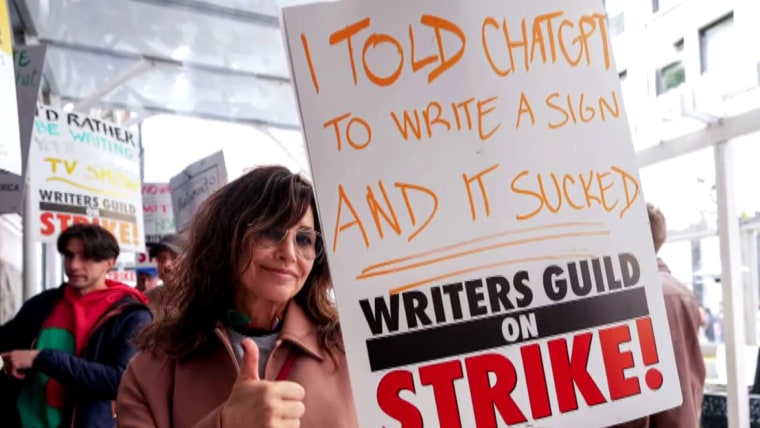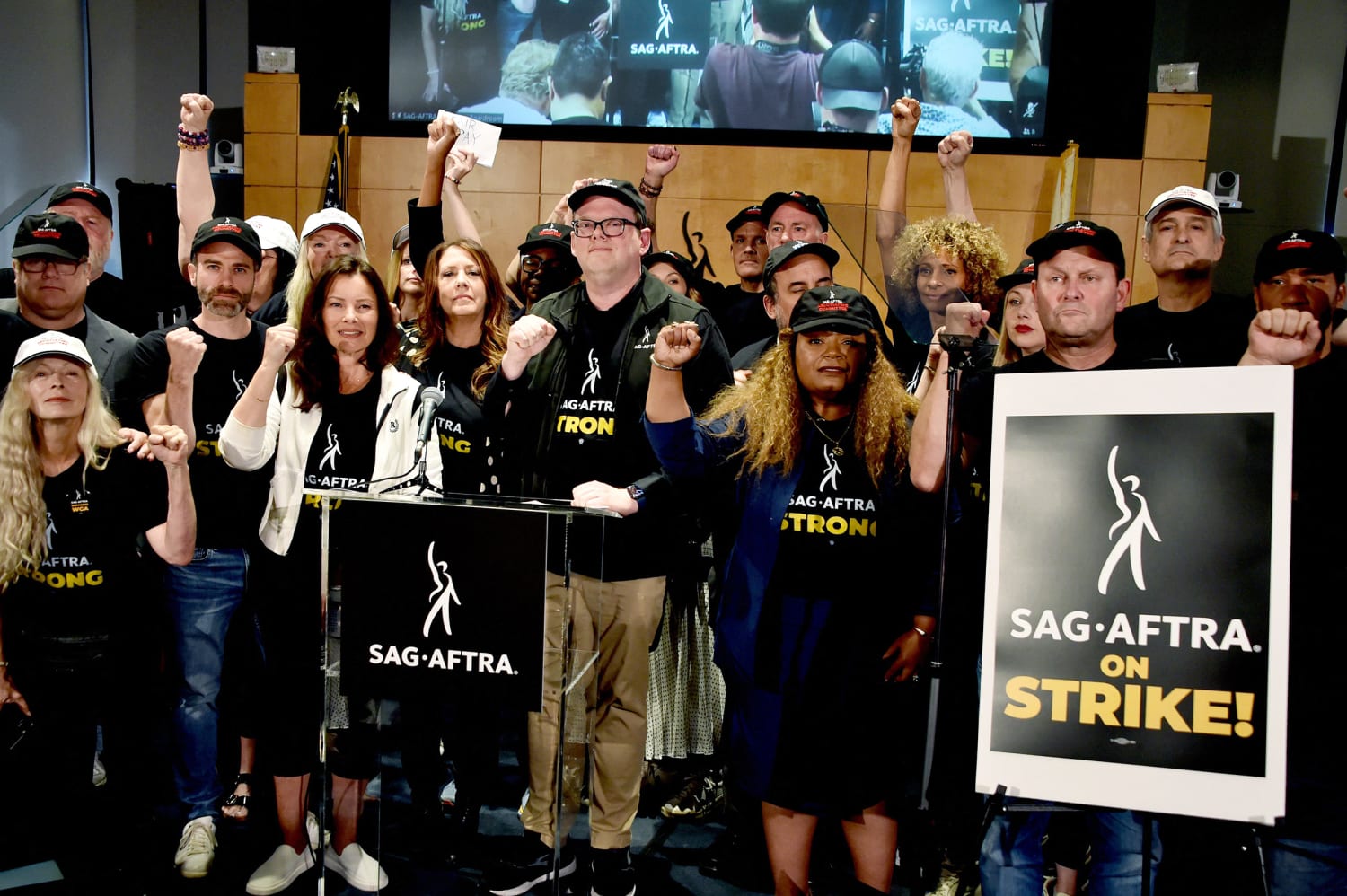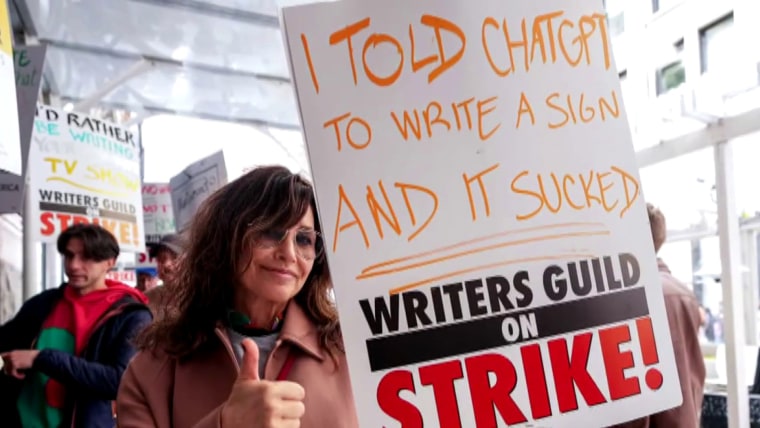The future of generative artificial intelligence in Hollywood — and how it can be used to replace labor — has become a crucial sticking point for actors going on strike.
In a news conference Thursday, Fran Drescher, president of the Screen Actors Guild-American Federation of Television and Radio Artists (more commonly known as SAG-AFTRA), declared that “artificial intelligence poses an existential threat to creative professions, and all actors and performers deserve contract language that protects them from having their identity and talent exploited without consent and pay.”
“If we don’t stand tall right now, we are all going to be in trouble. We are all going to be in jeopardy of being replaced by machines,” Drescher said.
SAG-AFTRA has joined the Writer’s Guild of America, which represents Hollywood screenwriters and has been on strike for more than two months, in demanding a contract that explicitly demands AI regulations to protect writers and the works they create.
“AI can’t write or rewrite literary material; can’t be used as source material; and [works covered by union contracts] can’t be used to train AI,” read the WGA’s demands issued on May 1.
Artificial intelligence tools that mimic humans have in recent years become far more effective in creating images and text — and more common. Technology that replicates individuals’ faces and voices is becoming more prominent in Hollywood. Chatbots like ChatGPT, which can convincingly reproduce human writing, have surged in popularity since late last year. But they also have clear shortcomings: the bots often get basic facts wrong and are derivative when asked to write creative works.
The actors’ concerns highlight a broader anxiety among entertainers and people in many other creative professions. Many fear that, without strict regulation, their work will be replicated and remixed by artificial intelligence tools, and that such a transformation will both cut their control over their work and hurt their ability to earn a living.
The trade association representing Hollywood studios, the Alliance of Motion Picture and Television Producers, did not respond to requests for comment. But a statement from the group obtained by Deadline said it had offered actors a “groundbreaking AI proposal which protects performers’ digital likenesses, including a requirement for performer’s consent for the creation and use of digital replicas or for digital alterations of a performance.”
Duncan Crabtree-Ireland, SAG-AFTRA’s chief negotiator, said at the news conference that the studios’ proposal for AI rules exploited actors without speaking roles.
“They proposed that our background performers should be able to be scanned, get paid for one day’s pay, and their company should own that scan, their image, their likeness, and should be able to use it for the rest of eternity in any project they want, with no consent and no compensation,” he said.
The Director’s Guild of America, which unlike the other two Hollywood unions has announced a tentative agreement with studios, successfully added some AI protections in its contract. “Duties performed by DGA members must be assigned to a person and [generative artificial intelligence] does not constitute a person,” it says.
Justine Bateman, a member of all three unions, graduated with a computer science degree from UCLA and has been advising SAG on AI for negotiations. She said that it was fortuitous timing that those union contracts, which are for three-year periods, happened to expire soon after generative AI companies made their products widely available.
“The guilds were able to bring it into the negotiations because we could see how this was going to be used. Can you imagine if we had done our negotiations, and it was just another round, and then the day after all these deals are closed they released access to the public?” she said.
Other entertainers have tried alternate ways to counter AI. Earlier this week, comedian Sarah Silverman and two authors filed copyright infringement lawsuits against two of the most prominent generative AI companies: OpenAI, the company behind ChatGPT, and Facebook parent company, Meta.
The suit alleges that both companies effectively summarized the plaintiffs’ books, which only could have been done by reading and reproducing them for free without their authors’ permission. Meta declined to comment. OpenAI didn’t respond to a request for comment.
Alex Winter, a filmmaker who has directed several documentaries about the dangers of emerging technologies and is also a member of all three guilds, said the unions should take an extreme position on AI rights, given the unknowns about the technology.
“I think we really need to be thinking about coming up with these things from a labor standpoint in terms of very aggressive demands,” he said. “We are not interested in you implementing these technologies with our work at all.”
“My concern is that if we give them a little bit of room in the door, they’re just going to knock the door open. Because you just don’t know how these technologies work,” Winter said.
Source: | This article originally belongs to Nbcnews.com











